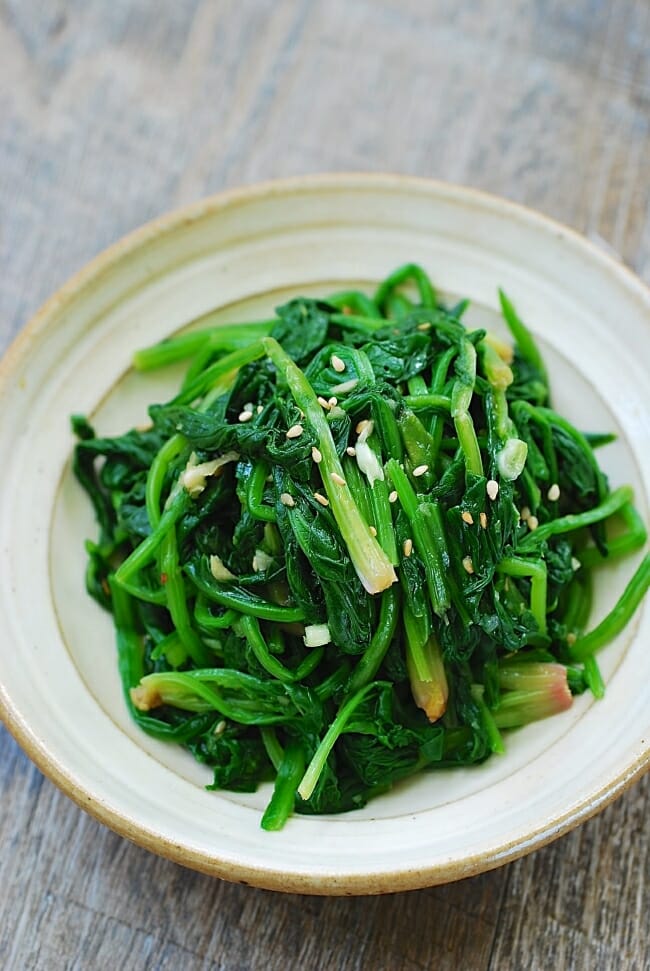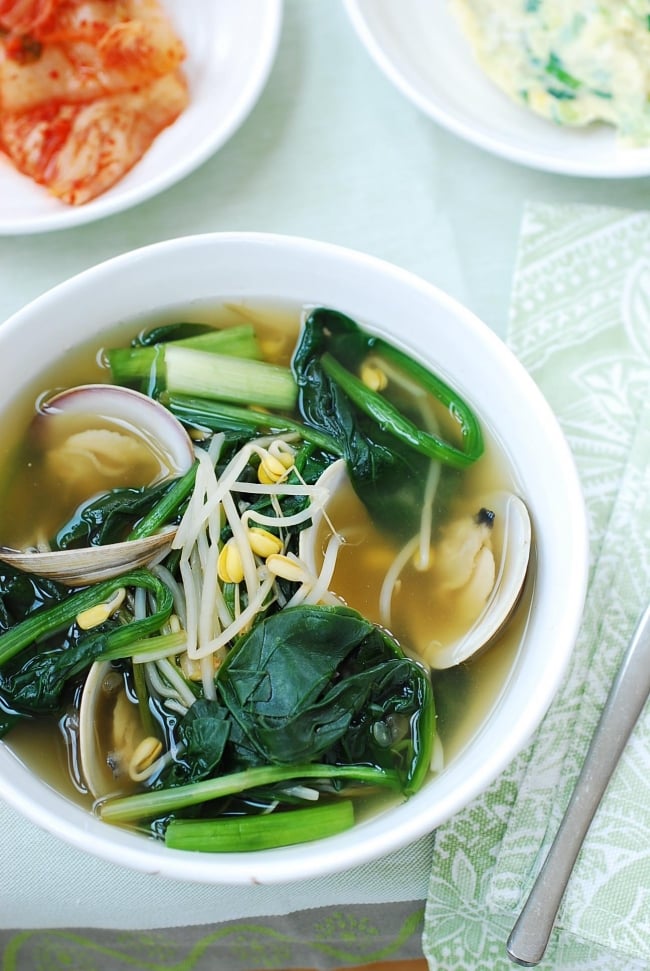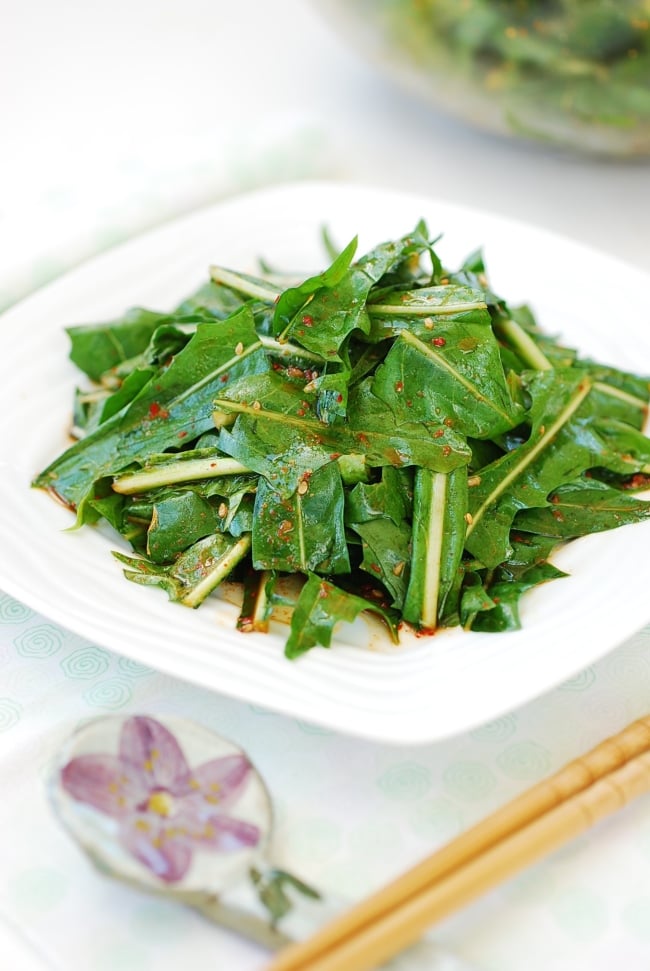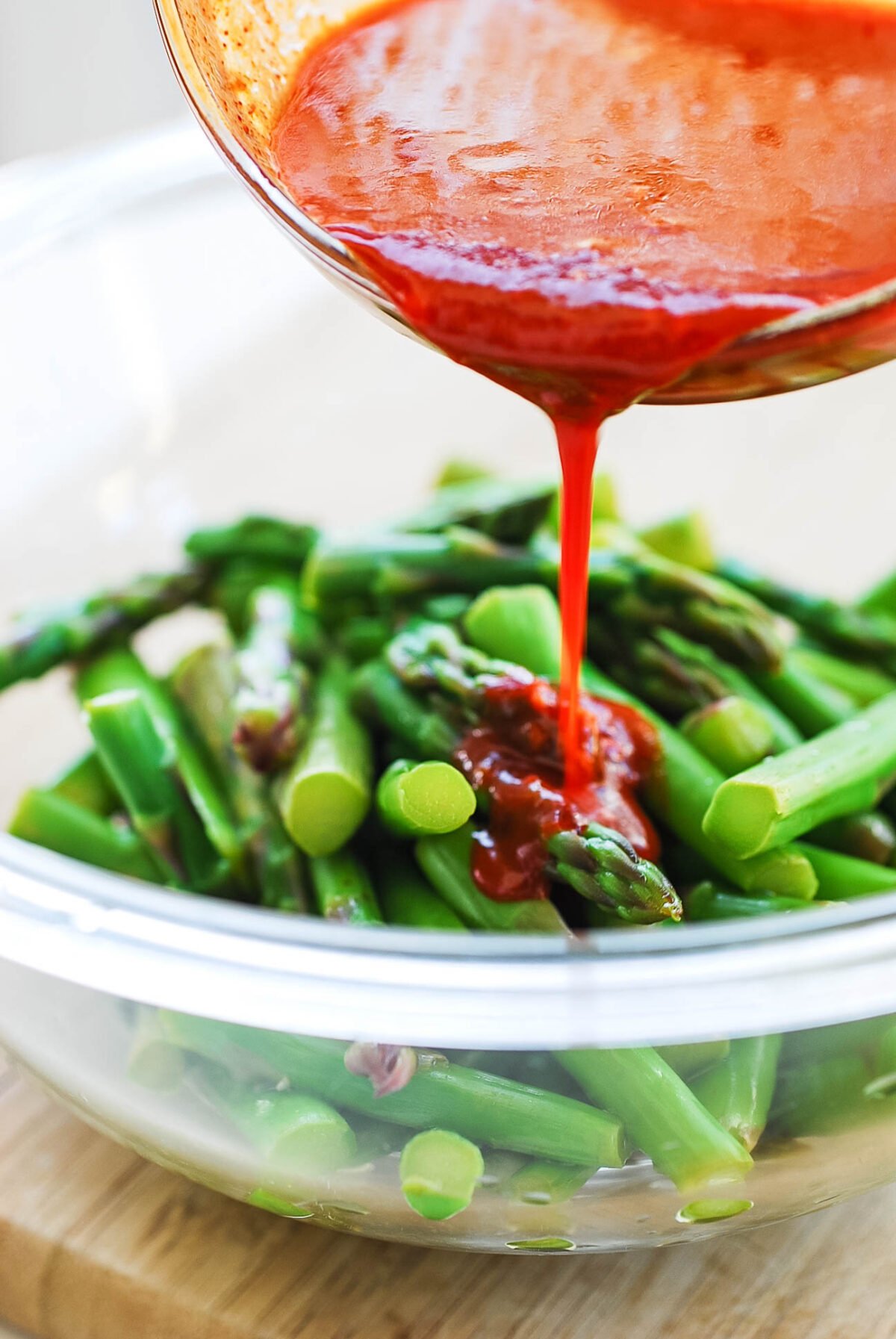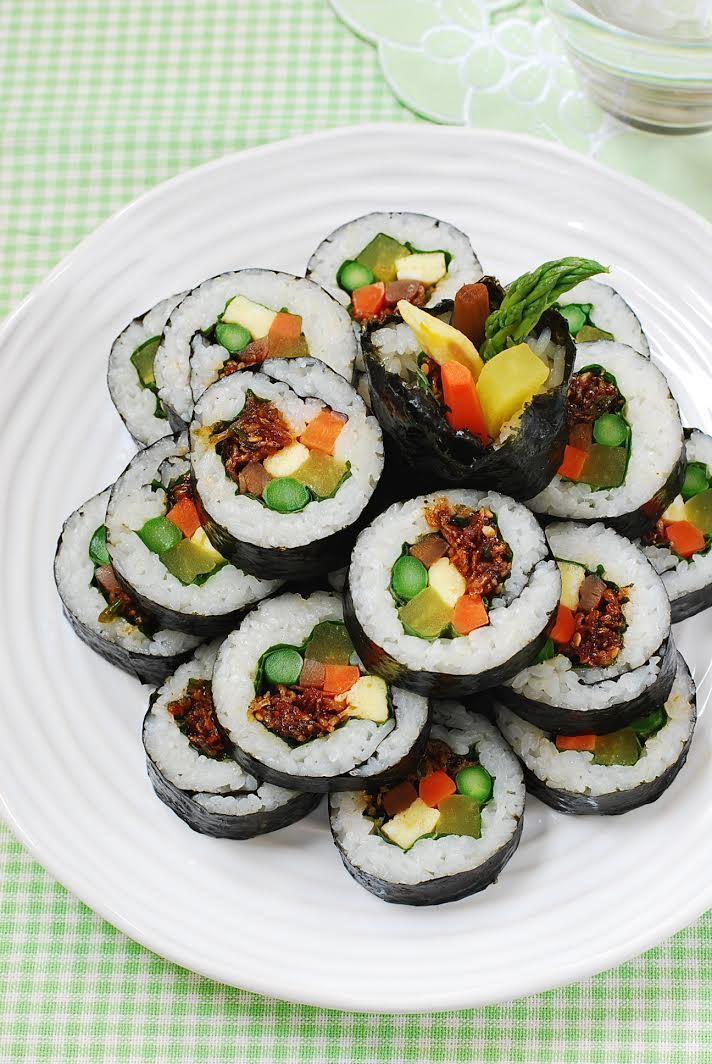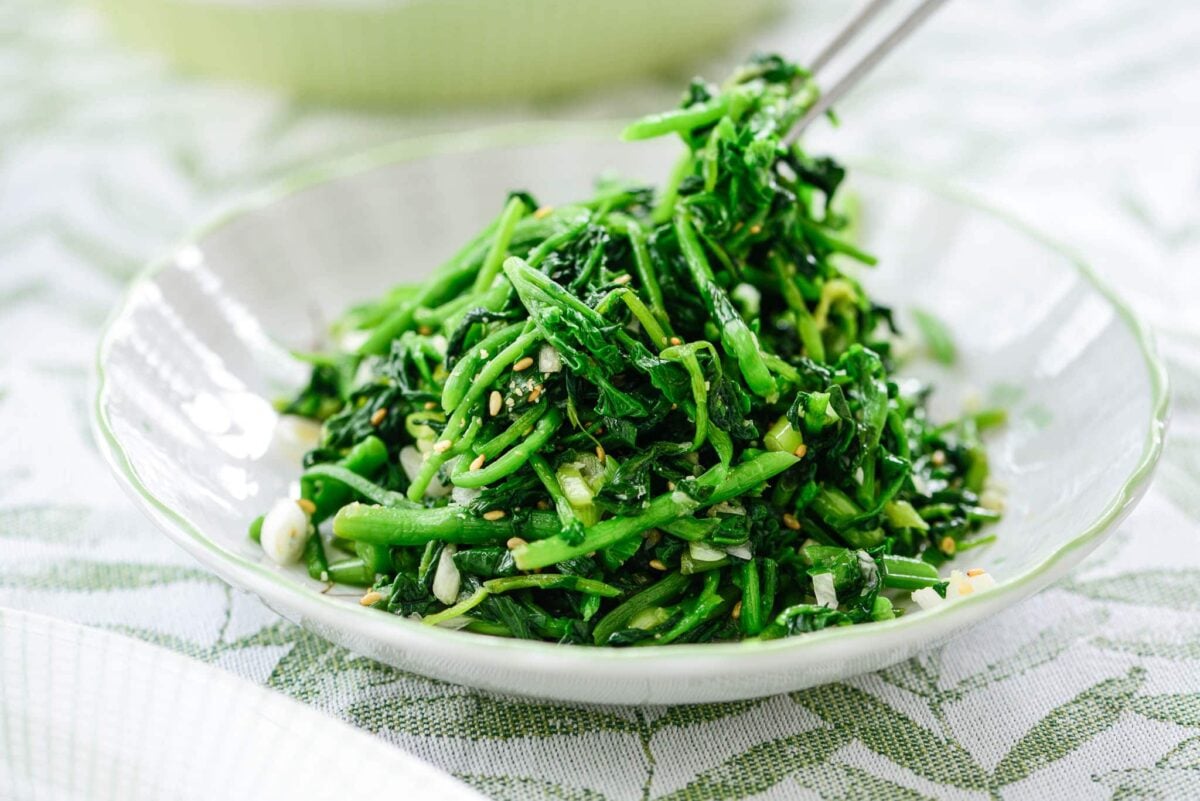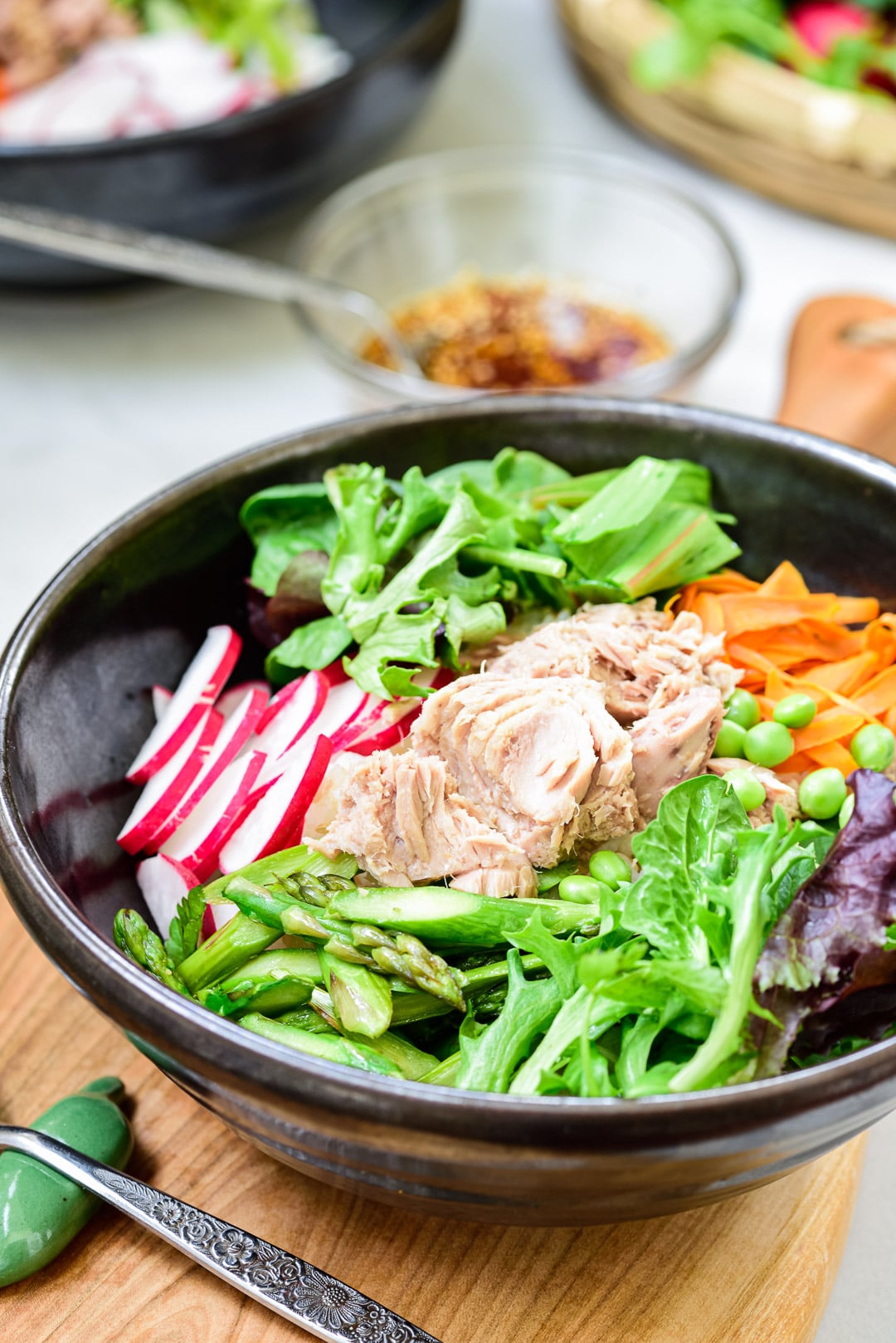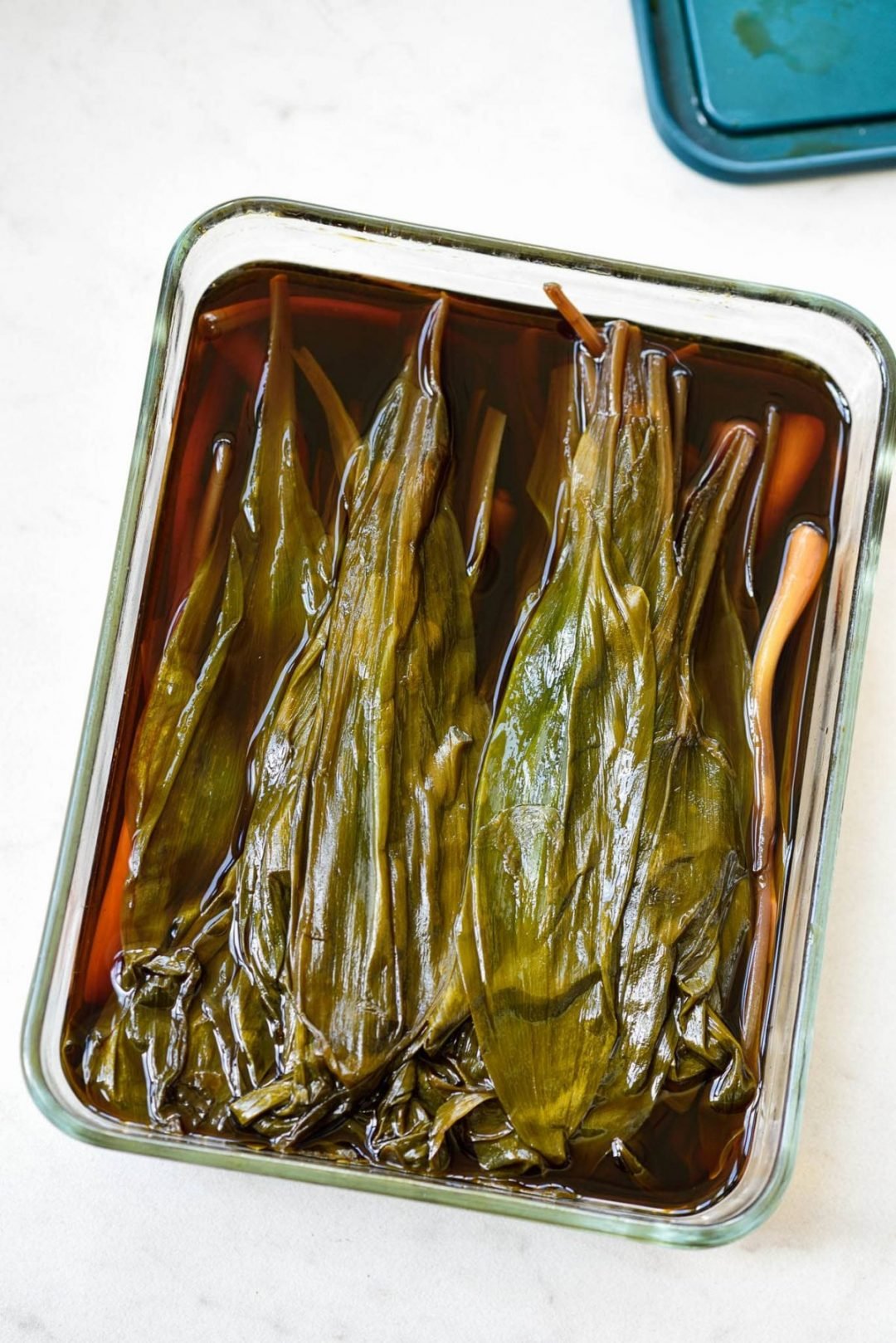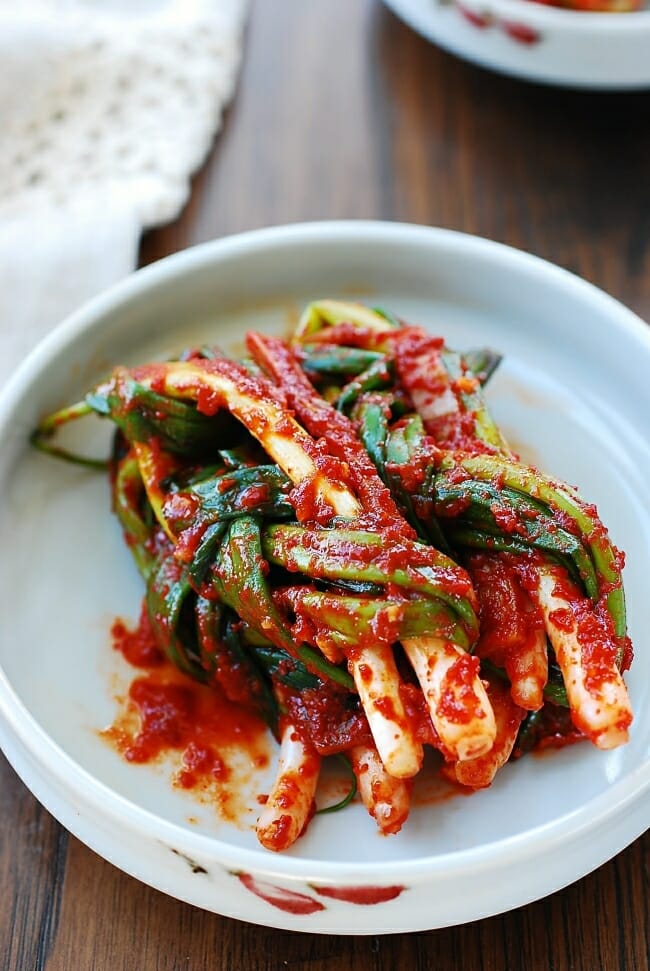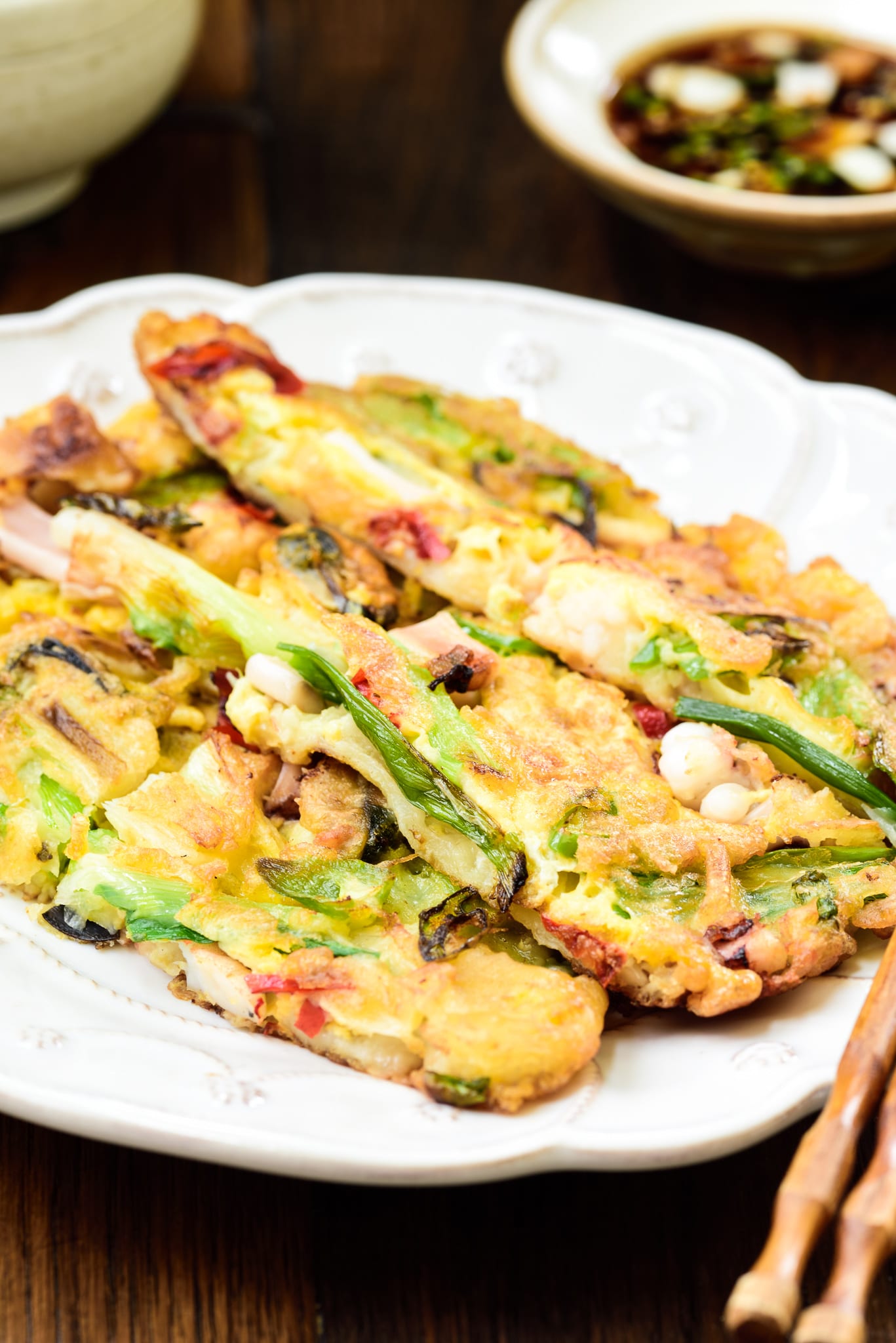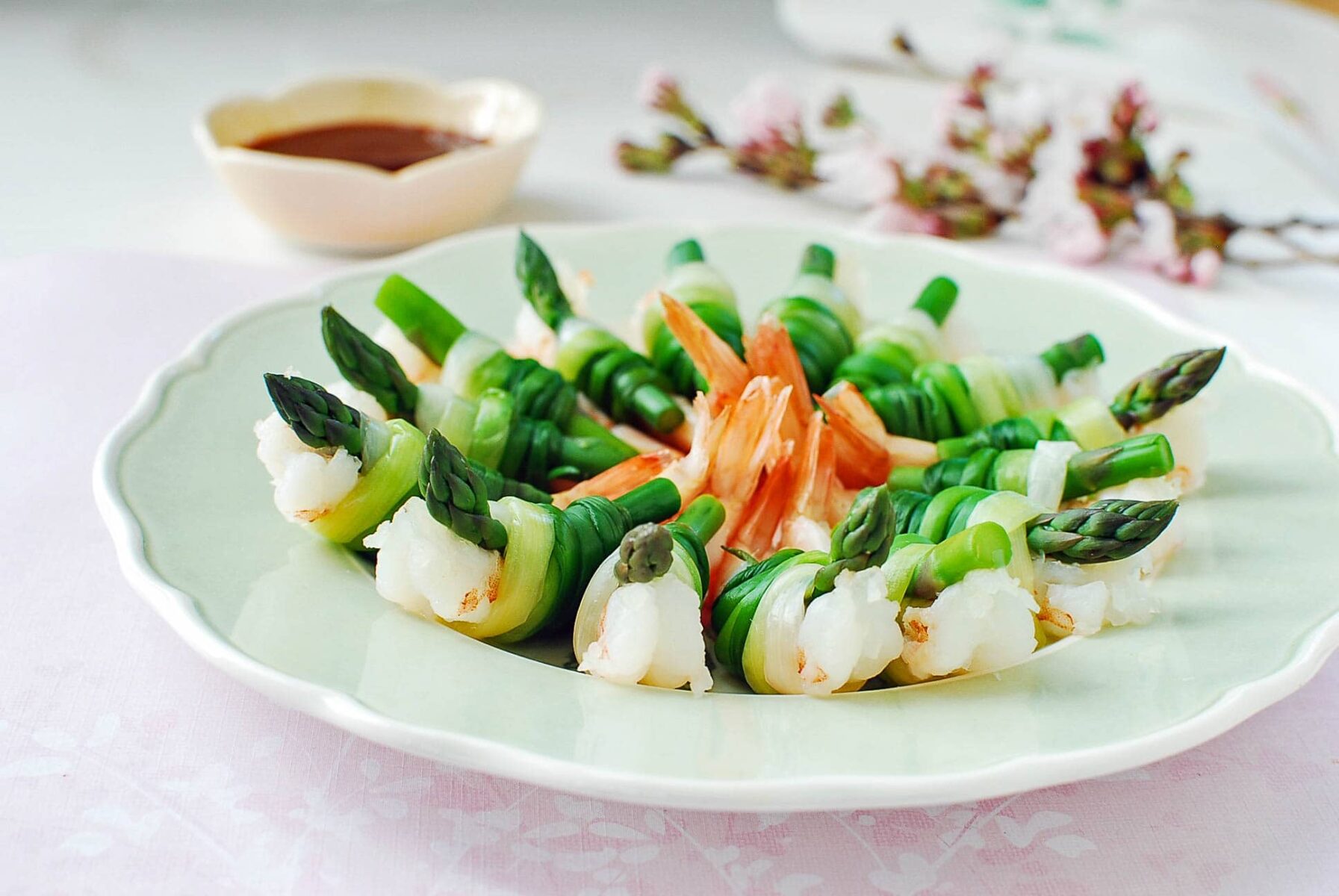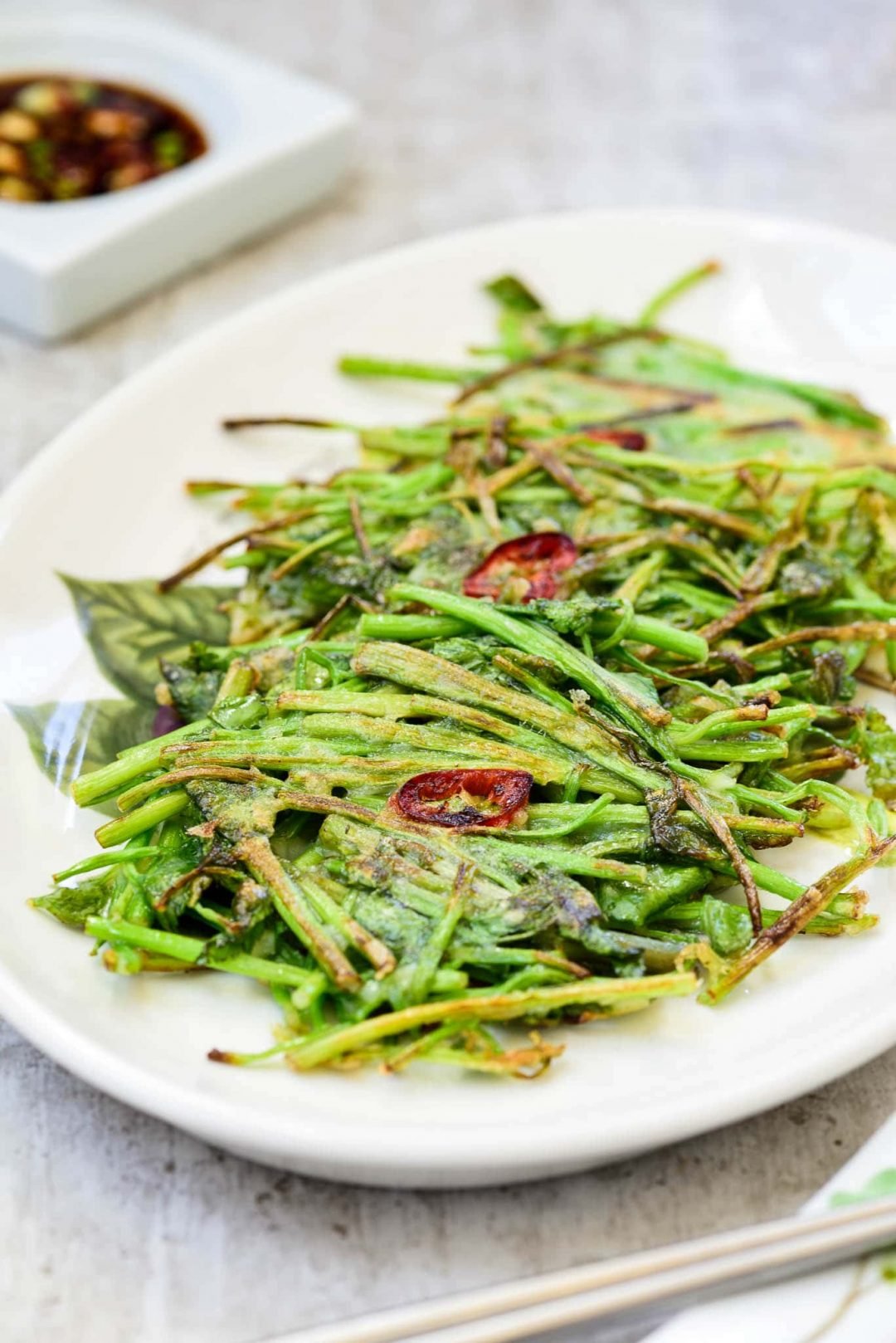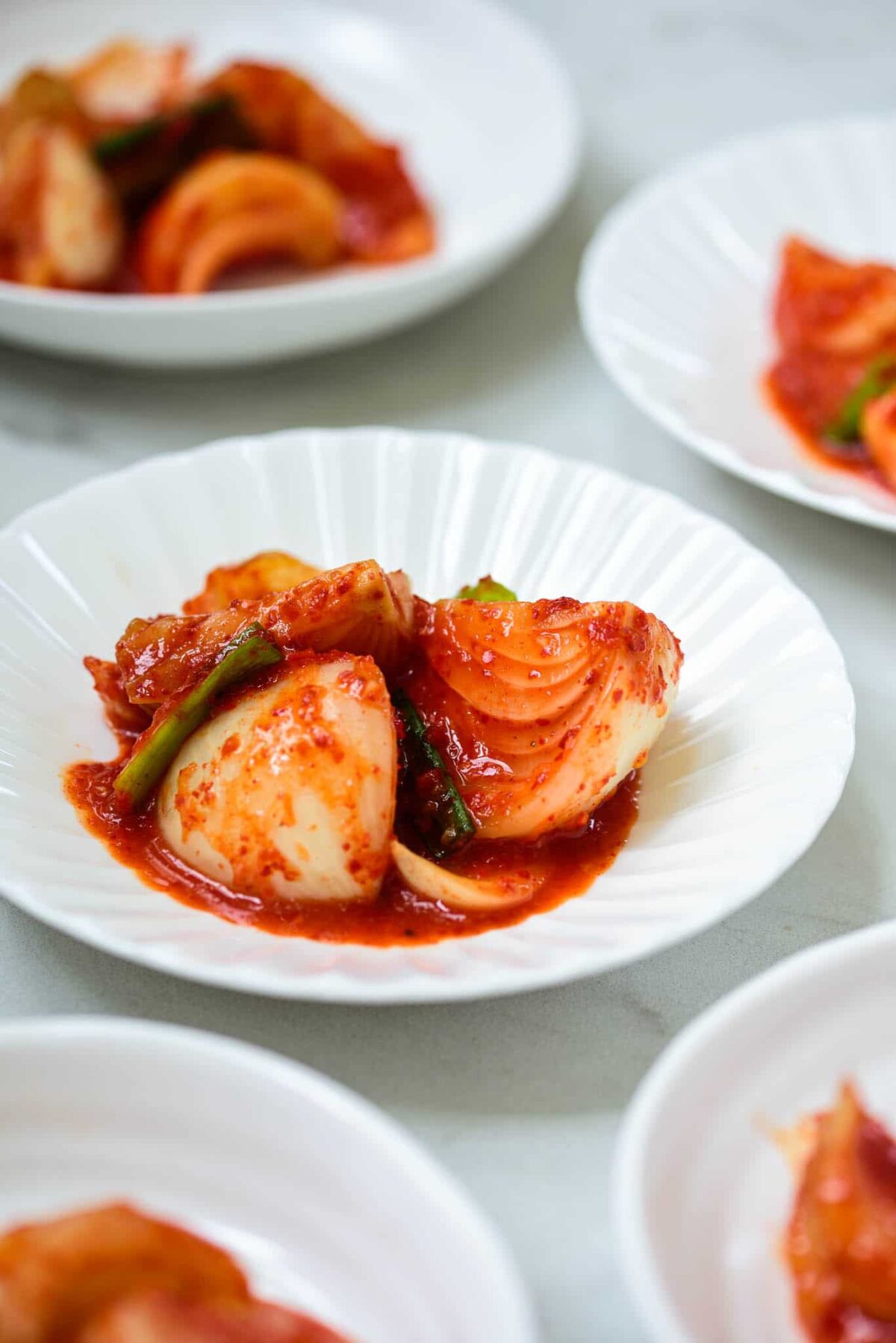Here are some delicious Korean dishes you can make with fresh, seasonal vegetables this spring!
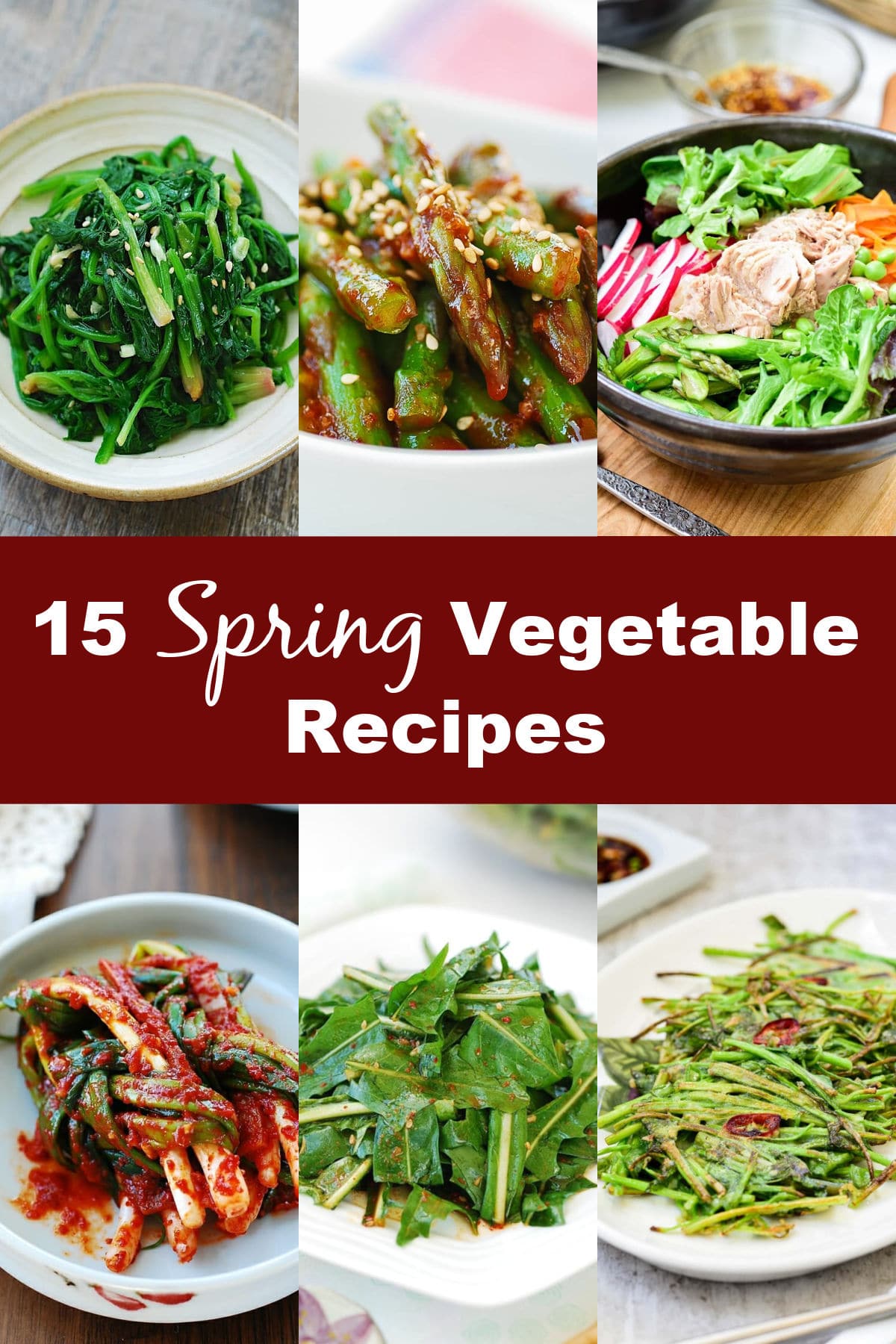

Spring is here! There are lots of wonderful spring vegetables available in grocery stores and farmers markets. Look for fresh ramps, young spinach with beautiful purple stems, thin spring scallions, and even mugwort (ssuk쑥)! You might also find dandelion leaves and garlic scapes at your local grocery store or farmer’s market, and definitely everyone should grab some asparagus this time of year!
Spring vegetables are so delicious because they are sweeter and more tender than when they mature later in the growing season. Eating these tasty greens in the spring have lots of health benefits too.
In Korea, there are an infinite number of different farmed and wild vegetables that peak this time of year. One of the reasons that I love visiting Korea in springtime! As a young child, I grew up in the countryside, not too far from Seoul, with a lot of fields and small hills. I have many fond memories of just going out into the field with friends and picking all sorts of wild vegetables such as ssuk, (쑥, mugwort), dallae (sooth, Korean wild chives), naengi (shepherd’s purse, Shepherd’s purse), etc. We just picked them for fun, but they were turned into delicious dishes by our mothers.
Over the years, I started to grow a few different Korean wild vegetables in my backyard. I’ve been harvesting and enjoying them in many dishes. I hope to share more about them in the future.
To inspire you, here is a round-up of some of my favorite recipes you can make to enjoy your spring veggies!
Spinach
Spinach (sigeumchi, 시금치) is available year round, but spring spinach is especially tender and flavorful! In Korea, spinach bunches are usually sold with roots attached. Both the leaves and stems, including the root crowns, are used in cooking, which gives a nice sweet flavor and chewy texture to the dish. So, try to find young spring spinach with their purple-red root crowns, if you can.
1. Sigeumchi Namul
A simple, but highly popular side dish! Also try the same methods and seasonings with baby kale, watercresssnow pea tips, etc.
2. Sigeumchi Doenjang Guk
This spinach soup made with doenjang is a popular soup in Korea, especially in spring. Commonly made with anchovy broth, the soup is light and refreshing! My mother sometimes used clams in the soup, which is how I make it.
Also, spring spinach is delicious in kimbap and bibimbap.
Dandelion
Dandelion leaves can be quite bitter, but are also packed with nutrients! They have been used in herbal medicine in Korea and other Asian countries. Dandelion greens may be available at your Korean markets and even your local grocery stores in springtime.
3. Mindeulle Muchim (Dandelion salad)
This slightly spicy, sweet and vinegary salad turns dandelion leaves into a delicious salad. If you can’t find dandelion leaves in your area, this sauce recipe is also great with spring mix, arugula, baby spinach, or crown daisy (ssukgat, 쑥갓). I also use it to make a salad with dolnamul (돌나물, stonecrop) I grow in my backyard.
Asparagus
You can also get asparagus year round, but this vegetable is truly the best when it is in season in the spring. You can use it in many Korean recipes such as bibimbap and kimbap. in addition to the recipes below.
4. Asparagus with Gochujang Sauce
Also, asparagus is delicious as this banchan dish in spicy gochujang sauce.
5. Myulchu kimbap
I used asparagus in this spicy anchovy kimbap, but you can use it in any kimbap recipes.
Watercress
Watercress is loaded with many important nutrients such as important vitamins and minerals, especially vitamin K. I love its slightly bitter, spicy and peppery taste.
6. Watercress namul
Watercress namul is prepared very similar to siguemchi (spinach) namul — blanched and seasoned with a few basic ingredients. When lightly cooked, watercress has that crunchy and chewy texture Korean namul is known for.
Ramps
Known as wild garlic or wild leek, they have a mild onion flavor, and are more garlicky than scallions. Each plant has a couple of flat, broad leaves with a long, reddish stem with a small round bulb. Ramps are very similar to (if not the same as) myeongi namul (명이나물) in Korea, which is enjoyed many different ways — fresh, cooked or pickled.
7. Spring Bibimbap with Tuna
In this spring bibimbap recipe, I used ramps along with other spring vegetables such as asparagus and peas. I sometimes add some Korean vegetables such as minari, buchu, and kkaennip as well. A gochujang sauce is usually used in traditional bibimbap, but a soy sauce-based sauce works wonderfully well with this dish.
8. Jangajji (Vegetable Pickles)
Ramp season is short, so you can also preserve your ramps by pickling them with my jangajji recipe and enjoy throughout the year. Great with Korean BBQ!
Green Onions (Scallions)
You can use any types of scallions for these dishes, but spring thin scallions such as jjokpa (scallions) and silpa (실파) are especially delicious.
9. Pa kimchi
Also, be sure to make this easy pa kimchi with those spring green onions. This pa kimchi goes great with any grilled meat, like samgyupsalor added to kimchi jigae especially when it gets more sour. This kimchi is also excellent in a bowl of instant ramyun.
10. Haemul Pajeon (scallion pancakes)
You can make pajeon with any types of scallions, but spring thin scallions such as jjokpa (쪽파) and silpa (실파) are great for pajeon as they are sweet and tender.
11. Green onion tied shrimp and asparagus
Tender thin green onions called shilpa (실파) in Korean, which means thin as a thread. Usually you can get scallions all year round, but if you can find the thin spring green onion, this shrimp dish will elevate this vegetable (and impress your friends!).
to the pain
Known as water dropwort in the U.S., minari is a long-stemmed green vegetable with hollow stems and small green leaves with serrated edges. It has a slightly bitter and peppery taste with a sharp, distinctive fresh herbal accent. Minari is a popular herb and vegetable in Korea not only for its flavor but for many health benefits including detoxifying effects.
12. Minari Jeon
A simple Korean savory pancake made with minari (aka water dropwort or Korean watercress) is a great way to enjoy the vegetable’s distinctive fresh herbal flavor.
Onion
Onions (yangpa, 양파) are versatile and available all year long. However, when spring comes around, freshly-harvested onions are tender and sweet. It’s the best time to make some kimchi with them.
13. Yangpa (onion) kimchi
Garlic scapes
Garlic scapes (maneuljjong, 마늘쫑 ) are usually available in the late spring and early summer, when scapes are most tender and sweet. Garlic scapes are the curly flowering shoots/stalks of garlic plants that are snipped off to allow the bulbs to grow bigger. They have a milder flavor than garlic cloves but are still quite garlicky. When cooked, the scapes become sweeter with a subtle garlic undertone and have a texture similar to that of thin asparagus.
14. Stir-fried Garlic Scapes (Maneuljjong Bokkeum)
If you see some garlic scapes at your grocery store, try this simple stir-fried banchan dish. 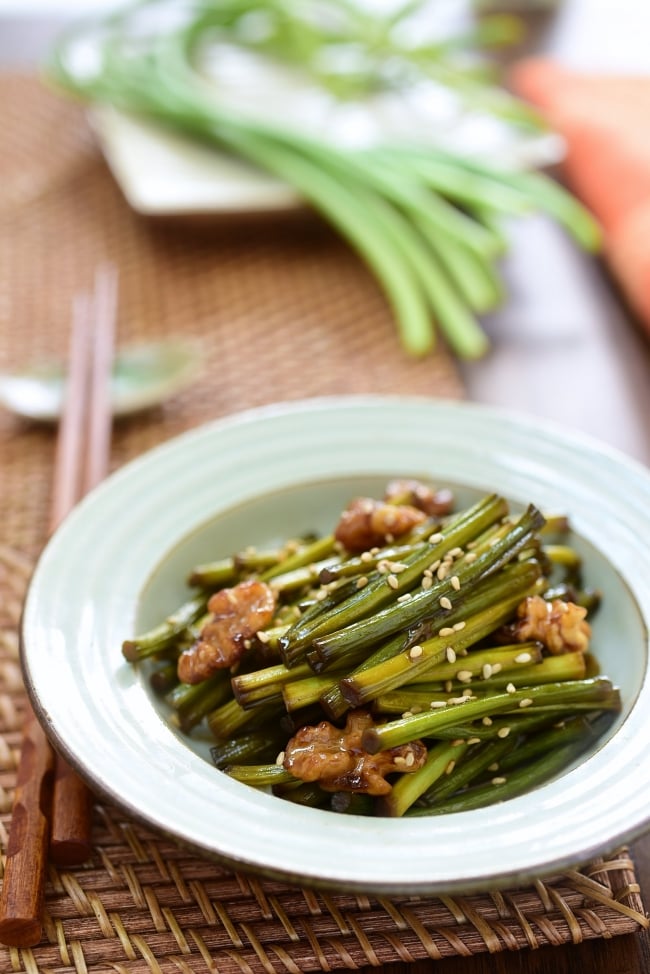

15. Maneuljjong Muchim (Spicy Garlic Scapes)
For this recipe, blanch the scapes in boiling water. Blanching brings out mildly sweet garlic flavor and tenderizes the scapes. After rinsing them in cold water and draining, mix with a few basic seasoning ingredients.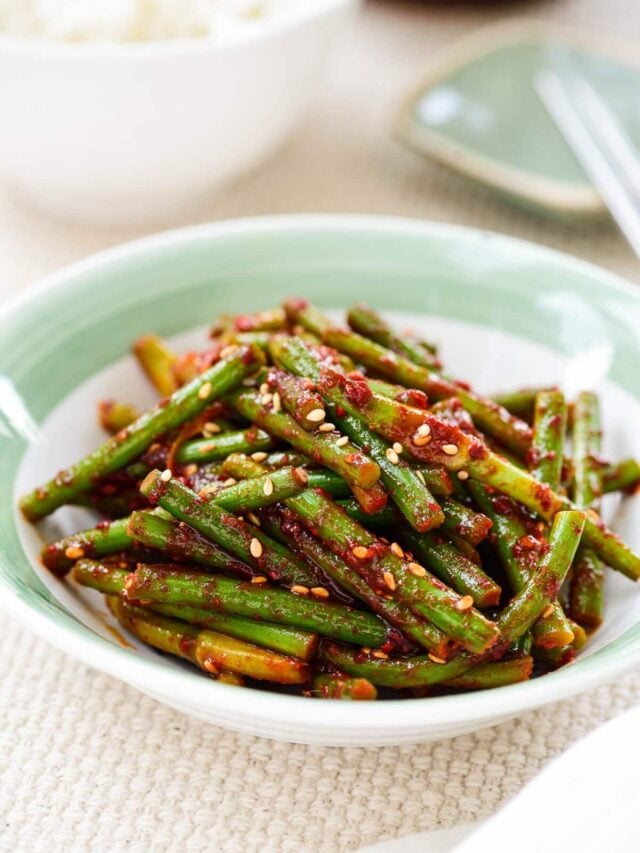

For more Korean cooking inspirations, follow along on YouTube, Pinterest, Twitter, Facebookand Instagram.
This list has been updated for 2023 with more recipes.


